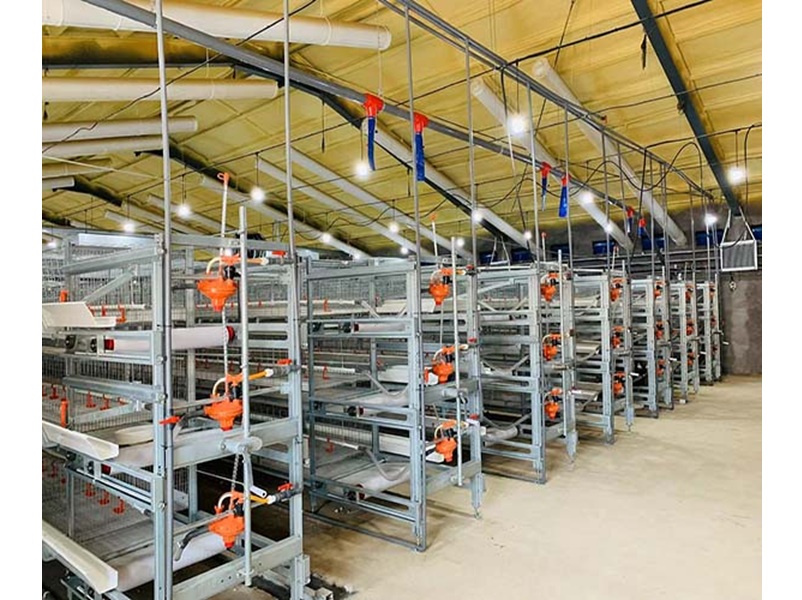Eco Chicken Manure Processing Equipment for Waste Recycling
Introduction
The poultry industry is a vital sector in global agriculture, providing meat and eggs to meet growing food demands. However, it also generates significant amounts of waste, primarily chicken manure, which poses environmental challenges if not managed properly. Traditional disposal methods, such as open dumping or direct land application, can lead to water pollution, greenhouse gas emissions, and soil degradation.
To address these issues, eco-friendly chicken manure processing equipment has been developed to convert waste into valuable resources like organic fertilizer, biogas, and bioenergy. This technology not only mitigates environmental pollution but also enhances agricultural sustainability by promoting a circular economy.
This article explores the types of chicken manure processing equipment, their working principles, benefits, and applications in waste recycling.
---
Types of Eco Chicken Manure Processing Equipment
1. Composting Systems
Composting is one of the most common methods for recycling chicken manure. It involves the aerobic decomposition of organic matter by microorganisms, producing nutrient-rich compost.
Key Equipment:
- Turners and Mixers: Mechanical turners aerate the manure pile, accelerating decomposition.
- In-Vessel Composters: Enclosed systems that control temperature, moisture, and aeration for faster processing.
- Curing Bins: Used for maturing compost before application.
Advantages:
- Reduces pathogens and weed seeds.
- Produces stable, odor-free organic fertilizer.
- Improves soil structure and fertility.
2. Anaerobic Digesters
Anaerobic digestion (AD) breaks down organic waste in the absence of oxygen, producing biogas (methane and carbon dioxide) and digestate (a nutrient-rich slurry).
Key Equipment:
- Biogas Reactors: Sealed tanks where manure is digested by bacteria.
- Gas Storage and Purification Systems: Collect and refine biogas for energy use.
- Digestate Separators: Separate liquid and solid fractions for fertilizer use.
Advantages:
- Generates renewable energy (biogas for electricity or heating).
- Reduces greenhouse gas emissions.
- Produces high-quality biofertilizer.
3. Pelletizing Machines
Pelletizing converts dried chicken manure into compact pellets for easy storage, transport, and application as fertilizer.
Key Equipment:
- Dryers: Reduce moisture content for efficient pelletizing.
- Pellet Mills: Compress manure into uniform pellets.
- Cooling and Packaging Systems: Ensure pellet stability and quality.
Advantages:
- Concentrates nutrients for slow-release fertilization.
- Minimizes waste volume and handling costs.
- Suitable for commercial organic fertilizer production.
4. Pyrolysis and Gasification Systems
These thermal processes convert manure into biochar, syngas, or bio-oil through high-temperature decomposition in low-oxygen environments.
Key Equipment:
- Pyrolysis Reactors: Heat manure to produce biochar and combustible gases.
- Gasifiers: Convert manure into syngas for energy generation.
- Emission Control Systems: Capture pollutants to meet environmental standards.
Advantages:
- Produces carbon-rich biochar for soil amendment.
- Generates renewable energy (syngas or bio-oil).
- Reduces waste volume significantly.
5. Vermicomposting Systems
Vermicomposting uses earthworms to decompose manure into high-quality humus.
Key Equipment:
- Worm Beds: Controlled environments for worm activity.
- Harvesting Tools: Separate worms from finished compost.
Advantages:
- Enhances soil microbial activity.
- Produces nutrient-dense vermicompost.
- Low-energy and low-cost method.
---
Working Principles of Chicken Manure Processing Equipment
Each system operates based on specific biological, chemical, or mechanical principles:
- Composting: Relies on aerobic microbes breaking down organic matter with oxygen, heat, and moisture.
- Anaerobic Digestion: Uses methanogenic bacteria to decompose waste without oxygen, producing biogas.
- Pelletizing: Involves drying, grinding, and compressing manure into dense pellets.
- Pyrolysis/Gasification: Thermal decomposition at high temperatures (300–1000°C) in oxygen-limited conditions.
- Vermicomposting: Earthworms digest manure, enriching it with beneficial microbes and nutrients.
---
Benefits of Eco Chicken Manure Processing
1. Environmental Protection
- Reduces methane emissions from manure decomposition.
- Prevents water contamination from nutrient runoff.
- Lowers reliance on chemical fertilizers.
2. Economic Value
- Generates revenue from organic fertilizer, biogas, or biochar sales.
- Reduces waste disposal costs.
- Supports sustainable farming practices.
3. Agricultural Improvement
- Enhances soil fertility and crop yields.
- Promotes circular economy principles.
- Reduces dependence on synthetic fertilizers.
4. Energy Production
- Biogas can power farms or be sold to the grid.
- Biochar and syngas provide alternative energy sources.
---
Applications of Processed Chicken Manure
1. Organic Fertilizer
- Compost and pellets improve soil health and plant growth.
2. Renewable Energy
- Biogas fuels generators or heating systems.
- Syngas and bio-oil serve as industrial energy sources.
3. Soil Amendment
- Biochar increases water retention and carbon sequestration.
4. Animal Feed Additive
- Processed manure (after sterilization) can supplement livestock feed in some regions.
---
Challenges and Solutions
1. High Moisture Content
- Solution: Use drying systems or mix with dry carbon-rich materials.
2. Odor and Pathogens
- Solution: Proper aeration in composting or high-temperature treatment.
3. Initial Investment Costs
- Solution: Government subsidies or cooperative farming initiatives.
4. Market Acceptance
- Solution: Educate farmers on the benefits of organic fertilizers.
---
Future Trends
1. Smart Monitoring Systems
- IoT sensors for real-time composting or digestion process control.
2. Integrated Waste-to-Energy Plants
- Combine manure with other organic waste for large-scale energy production.
3. Biochar Carbon Credits
- Monetize carbon sequestration benefits of biochar.
4. Modular and Mobile Units
- Small-scale, portable systems for remote farms.
---
Conclusion
Eco-friendly chicken manure processing equipment plays a crucial role in sustainable agriculture by converting waste into valuable resources. From composting and anaerobic digestion to pelletizing and pyrolysis, these technologies offer environmental, economic, and agronomic benefits.
As the world shifts toward circular economy models, adopting such systems will be essential for reducing pollution, enhancing soil health, and supporting renewable energy production. Continued innovation and policy support can further optimize these solutions for global adoption.
By investing in chicken manure recycling, farmers and industries can contribute to a greener future while improving productivity and profitability.
---
This 2000-word overview provides a comprehensive analysis of chicken manure processing technologies, their benefits, and applications in waste recycling. Let me know if you'd like any modifications or additional details!

 Catalogue
Catalogue








 Whatsapp
Whatsapp Телефон
Телефон
Шарҳ
(0)